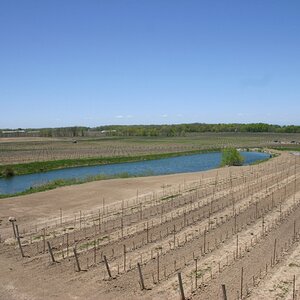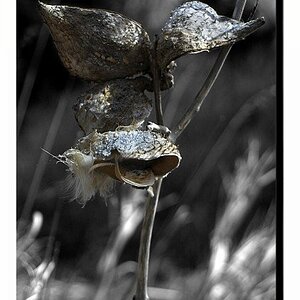Torus34
No longer a newbie, moving up!
- Joined
- Jan 26, 2006
- Messages
- 2,117
- Reaction score
- 37
- Location
- Tottenville, Staten Island, NYC USA
- Can others edit my Photos
- Photos OK to edit
In past posts I've noted the importance [to me] of a print's impact. It's this characteristic, this attribute, which sets a print above others of a similar subject. Impact can arise from the choice of specific subject, composition, lighting and/or image manipulation among other factors. Impact is that something which brings us to a halt and causes us to look at one particular print more closely. It's one of the prime factors, if not the prime factor, in making a print a good or great print when judged against others.
A recent photo posted on this site under the topic 'Creativity or crap' [sic] got me thinking again about the old discussion of what makes art art. What triggered it was the relationship of the image posted under the topic to Andrew Wyeth's painting of curtains at a window. Wyeth's painting is generally considered to be art.
And that brought me to another word: metaphor. Wyeth's painting not only provides an accurate image of curtains blowing at an open window but also engenders additional responses. We find ourselves thinking of the freedom of the open -- the freshness of the breeze -- spring and its sense of new beginnings. The world outside the window calls to us. The image -- the painting -- is a pathway to many concepts. It is a metaphor for them.
Gentle Readers, such extensions beyond a simple likeness of the object(s) pictured in a print or painting is one of the things that makes art art. Art can tell a marvelously detailed story. Look carefully at Caravaggio's Bacchus. Note the ripples in the wine caused by the unsteady hand and the condition of the fruit. But art can transcend simple representation and can also evoke thoughts and feelings. It can be a metaphor of them. There is more in the painting than just the depiction of the god of the vine.
In photography, consider the well-known print of US Marines erecting the flag at Iwo Jima. [It was a 'created' image, btw.] It certainly tells a story. It has eye-arresting impact [love that word!] based on composition and on the sense of effort and muscular strain so well captured. But it is also metaphor writ large. Victory is an all but inescapable concept, as is pride in country. Triumph over adversity is well-represented there.
So, along with technical expertise, composition and impact, might you not gain something by considering how to arrange for your final prints to include metaphor? Might the concept not also be a part of your kit along with lenses, the 'rule of thirds', an awareness of the lighting of the subject and the rest of the 'stuff' of photography qua photography?
A recent photo posted on this site under the topic 'Creativity or crap' [sic] got me thinking again about the old discussion of what makes art art. What triggered it was the relationship of the image posted under the topic to Andrew Wyeth's painting of curtains at a window. Wyeth's painting is generally considered to be art.
And that brought me to another word: metaphor. Wyeth's painting not only provides an accurate image of curtains blowing at an open window but also engenders additional responses. We find ourselves thinking of the freedom of the open -- the freshness of the breeze -- spring and its sense of new beginnings. The world outside the window calls to us. The image -- the painting -- is a pathway to many concepts. It is a metaphor for them.
Gentle Readers, such extensions beyond a simple likeness of the object(s) pictured in a print or painting is one of the things that makes art art. Art can tell a marvelously detailed story. Look carefully at Caravaggio's Bacchus. Note the ripples in the wine caused by the unsteady hand and the condition of the fruit. But art can transcend simple representation and can also evoke thoughts and feelings. It can be a metaphor of them. There is more in the painting than just the depiction of the god of the vine.
In photography, consider the well-known print of US Marines erecting the flag at Iwo Jima. [It was a 'created' image, btw.] It certainly tells a story. It has eye-arresting impact [love that word!] based on composition and on the sense of effort and muscular strain so well captured. But it is also metaphor writ large. Victory is an all but inescapable concept, as is pride in country. Triumph over adversity is well-represented there.
So, along with technical expertise, composition and impact, might you not gain something by considering how to arrange for your final prints to include metaphor? Might the concept not also be a part of your kit along with lenses, the 'rule of thirds', an awareness of the lighting of the subject and the rest of the 'stuff' of photography qua photography?
Last edited:


 People's opinions, all sorts of technical mumbo-jumbo, what lens we're supposed to use in situation X or Y, etc.
People's opinions, all sorts of technical mumbo-jumbo, what lens we're supposed to use in situation X or Y, etc.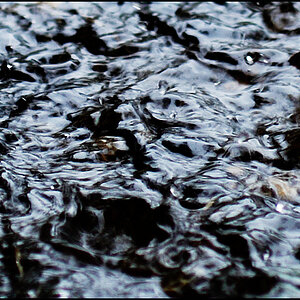
![[No title]](/data/xfmg/thumbnail/41/41786-0de67cacf7270937b4833f67d003f9c2.jpg?1619739891)
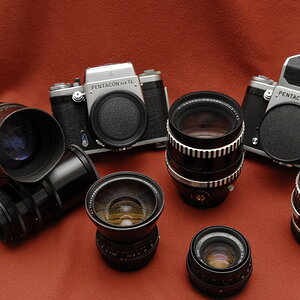
![[No title]](/data/xfmg/thumbnail/37/37107-df85b207aa6d9b7f6b88f682e493a52e.jpg?1619737882)
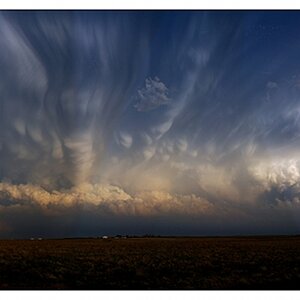

![[No title]](/data/xfmg/thumbnail/33/33439-7bb5d8a4a88131e09c082764dcb77a40.jpg?1619735969)
![[No title]](/data/xfmg/thumbnail/37/37109-62e1b65e6f8bd2a349250acd6d653f1e.jpg?1619737882)
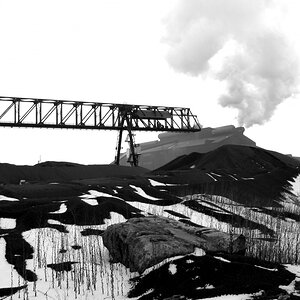
![[No title]](/data/xfmg/thumbnail/33/33437-e75ccdc53ab9428f2dd0218e568181b1.jpg?1619735969)
